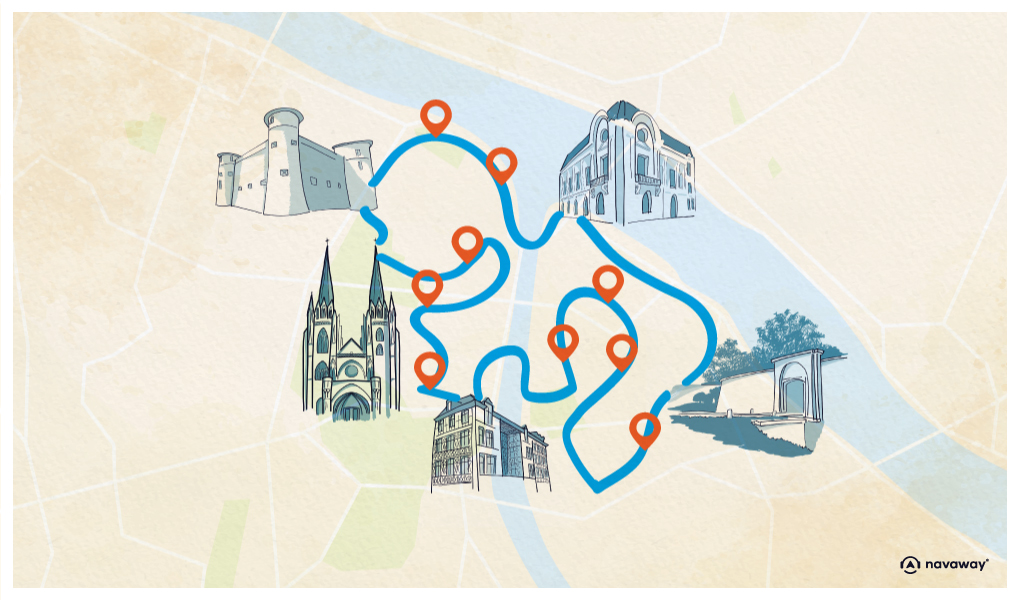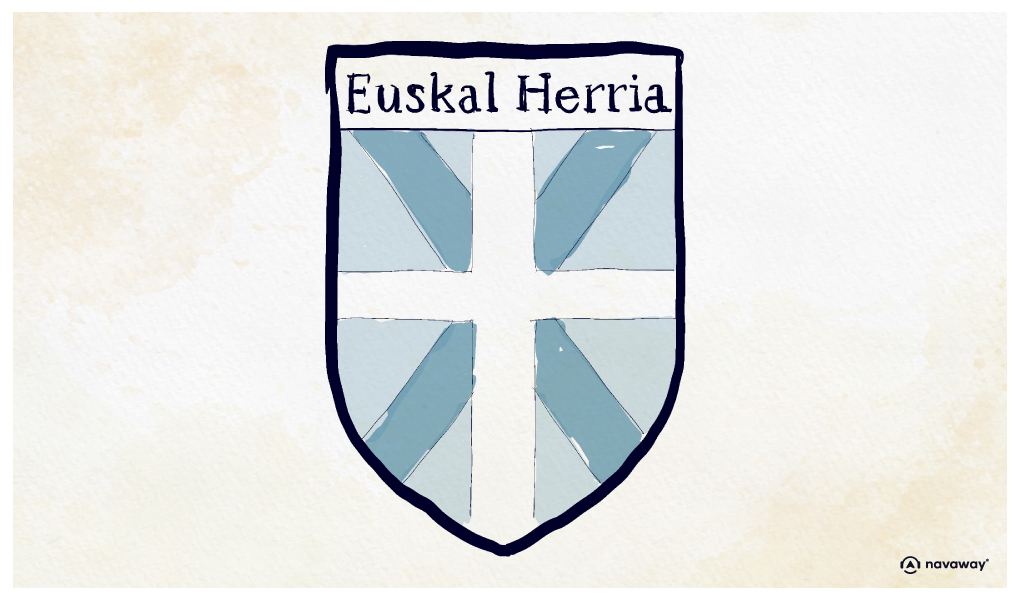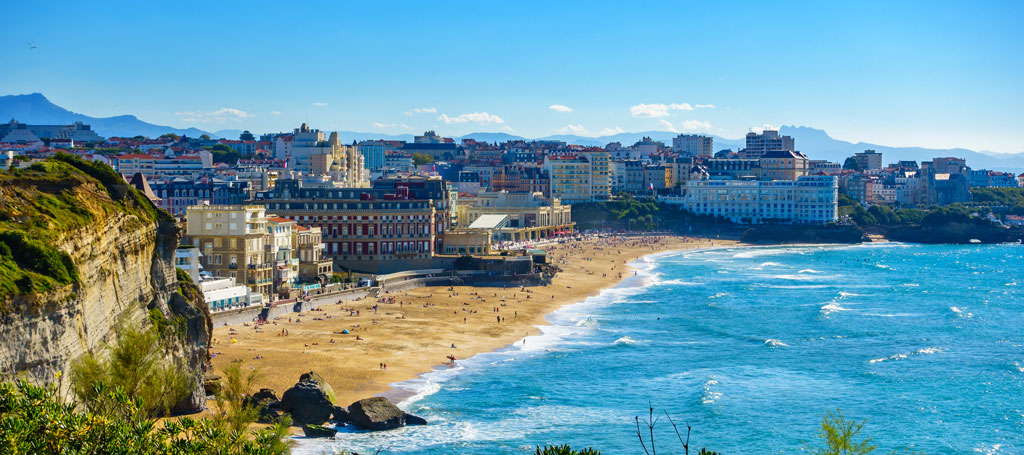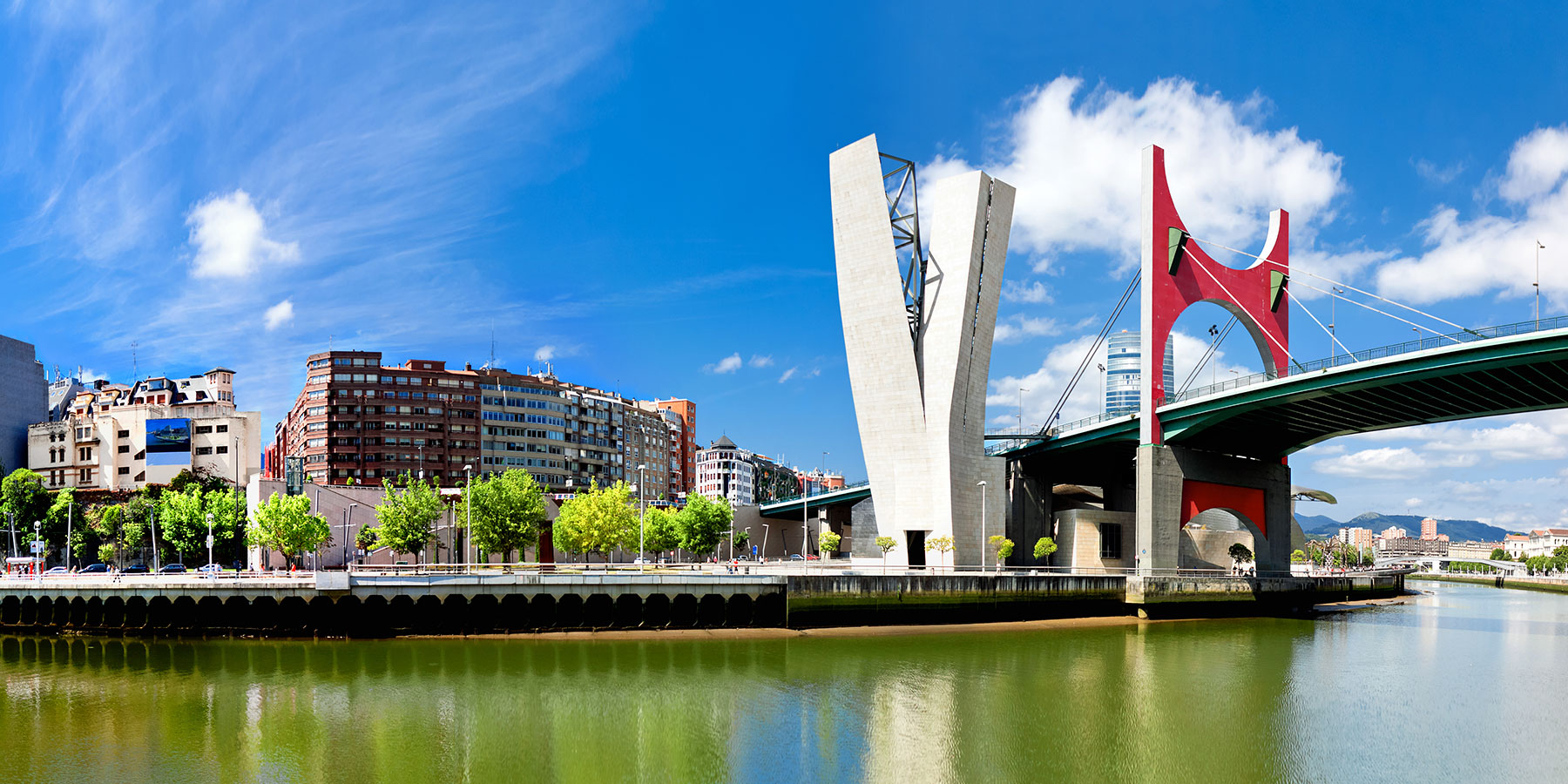
History of the Basque Country

This point of interest is available as audio on the tour: Visit Bayonne, Off to explore the Basque Country
Let’s make the most of our time here in Basque Square and talk a bit about the history of this magnificent region. Let’s take things from the beginning: the Basque people are thought to have descended from Neolithic farmers. They led a secluded life between the Atlantic Ocean and the Pyrenees, straddling what we now know as France and Spain. Time and again, invaders have failed to break their spirit; they never bent the knee to would-be conquerers, which has helped forge a strong identity that’s endured for centuries. In fact, they are thought to be the only people the Romans never truly subjugated, thanks to their remote, impassable location. After the fall of the Roman Empire, the Franks and Visigoths eyed their territory, but they were never able to fully control it. In the 8th century, the Muslims invaded the region and conquered Pamplona, the capital at the time. A century later, the Catholics began to reclaim the lands in Spain taken by the Muslims; at the time, part of the Southern Basque Country belonged to the Kingdom of Navarre, and part to the Kingdom of Castile. But even then, the Basque Country managed to hold onto a certain degree of autonomy, thanks to special charters to be respected by the lords, setting out the freedoms that the Basque people wished to retain. These included the right to their own local laws, taxes and courts. In France, the Basque region became part of Aquitaine in the 11th century, only to fall under English rule until the end of the Hundred Years’ War in the 15th century. The kingdom of France eventually took over the territory. Meanwhile, in Spain, the Kingdom of Castile invaded and conquered Navarre in 1521. Yet the charters remained in force for the next 3 centuries and were abolished only in 1876, sparking a surge of Basque nationalism, as the region’s inhabitants fought to regain their autonomy. When the Spanish Civil War broke out in 1936, the Basque Nationalist Party formed an alliance with the legal government in Madrid, against Franco’s military regime. This led to the infamous bombing of Guernica, ordered by General Franco and immortalized in Picasso’s famous painting. Many exiles then crossed the border to the French part of the Basque Country. Franco’s dictatorship lasted until 1975 and was a dark chapter in Spanish history, with Basque nationalist movements becoming increasingly radicalized and staging numerous terrorist attacks to claim their independence. It was not until 1975, when King Juan Carlos came to power, that concessions were made, and the Basque Country became one of Spain’s 17 Autonomous Communities. This granted the Basque Country a certain degree of autonomy, which still falls short of the expectations of Basque nationalists, but has helped ease tensions. So you see, the Basque people, with a history that goes back many centuries, have fiercely protected their culture and traditions through the ages. Their story is a testament to their resilience and unbroken spirit.


Discover Bayonne with app
An interactive guide through the most beautiful streets, squares, and districts
22 fun audioguides full of historical facts, anecdotes, and legends





Comments